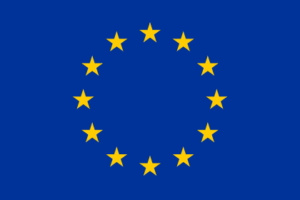Authors: Cerrato S., Balli E.
Cerrato S., Balli E. (2024), The Step Change Navigator, ECSA, Berlin
Infectious disease outbreak preparedness | Italy
Navigating uncertain waters
This section embarks on a journey to explore a citizen science initiative in Italy aimed at enhancing preparedness for future infectious disease outbreaks. This project navigates the uncharted territory of citizen science in the realm of public health preparedness.
Learning from past voyages
The research team at Tor Vergata initially focused on participatory action research and popular epidemiology approaches, which have proven effective in various past outbreaks, including Zika, Ebola, Avian flu, Swine flu, SARS/MERS, and COVID-19. These approaches, like sturdy vessels, have demonstrated their potential to support public health practices during outbreaks.
Charting a new course
Building upon this foundation, the project delved deeper, investigating how citizen science and similar approaches could be applied specifically within the context of the COVID-19 pandemic. This investigation led to the development of a taxonomy for citizen science interventions, categorising potential applications based on different disease types and epidemiological behaviours. This taxonomy serves as a valuable map for future citizen science endeavours in public health.
Exploring existing voyages
Next, the team undertook a voyage of analysis, examining relevant citizen science initiatives that had already set sail. Additionally, they conducted an on-site visit to the locations where these initiatives were implemented, gaining valuable firsthand insights.
Preparing for the future
Drawing upon the knowledge gathered, the project team co-designed a citizen science strategy specifically tailored to boosting Italy’s preparedness for future outbreaks. This strategy aims to raise awareness about the valuable role citizen science can play when incorporated into institutional and scientific practices for effective infectious disease outbreak management.
Engaging the crew
The project involved citizen scientists, who actively participated in analysing, discussing, and developing strategies for civil society engagement in the fight against infectious disease outbreaks. This collaborative approach ensured that diverse voices and perspectives were incorporated into the strategy.
Facing rough seas
The initial stages of the project, however, were not without their challenges. The Tor Vergata team encountered resistance from the public, who were weary of topics related to the COVID-19 pandemic, including prevention measures like social distancing, masks, and vaccines. This public fatigue significantly impacted the recruitment phase for citizen scientists. Many individuals were distrustful of the project’s proposal to collaborate with researchers, and some viewed preparedness efforts as unnecessary due to the recent pandemic experience. The initial meetings often became platforms for citizens to express their disappointments with the difficulties they had faced during the pandemic, sometimes holding the research community partially responsible. This initial phase, characterised by listening and understanding the public’s perspective, proved crucial for the team to adjust their approach and acknowledge the public’s state of distrust and apprehension about future outbreaks.
Adapting the course
Recognizing the societal shift between 2022 and 2023, the research team adapted their approach accordingly. They focused on recruiting citizen scientists from highly responsive groups directly impacted by past outbreaks or those directly involved in emergency response, such as school operators, healthcare workers, and citizen associations. This targeted approach aimed to engage individuals with a vested interest and relevant experience in preparedness efforts.
Unforgettable encounters: a shift in the tide
This section highlights the unforgettable moments experienced by the Tor Vergata team during the citizen science initiative. These moments mark a positive shift in public perception and engagement.
Dialogue and understanding
Events like the European Researchers’ Night in 2023 finally provided an opportunity for meaningful dialogue with the public. The project team presented their findings, including insights from citizen science experiences in other countries. This presentation sparked considerable interest, with attendees asking questions and engaging in constructive discussions, a stark contrast to the criticism faced in 2022. This positive shift in public receptiveness within a year signifies a growing interest in the crucial topic of infectious disease preparedness.
Listening and learning
Throughout 2023, the team organised dedicated meetings with citizens to discuss infectious disease preparedness. After navigating the initial challenging phase marked by public distrust, the team found themselves sailing in calmer waters. They were met with active participation and interest from the citizens involved. These meetings fostered open dialogue, allowing each individual to share their voice on preparedness, recounting their own experiences and raising various relevant issues from diverse societal perspectives. The Tor Vergata team adopted a listening approach, transitioning from being the “scientists” dictating protective measures to becoming “scientists” who actively listen to the public’s concerns and perspectives on protection and preparedness for infectious diseases.
“The interactions with the public made us reflect on the need to identify the right times, places, ways and, above all, targets to communicate and collaborate on citizen science projects.”
User Type
- Citizen scientist/civil society organization
- Researcher/research institution
Resource type
- Case studies
- Projects/project examples
Research Field
- Medical and Health Sciences



